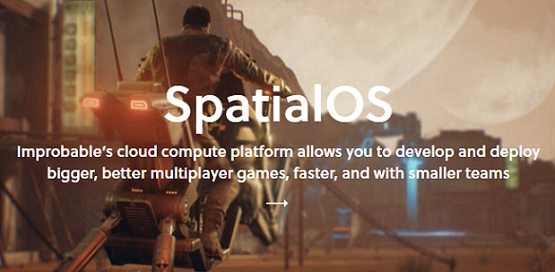How Improbable’s SpatialOS may revolutionise your business

By now, you have probably heard about Improbable, the virtual simulation start-up that raised $502m from Japan’s SoftBank – but what you might not have considered is how its technology could be of interest to your business.
Founded in 2012 by a pair of Cambridge University computer science graduates, Improbable is now valued at more than $1bn thanks to the investment by SoftBank, which represents the largest-ever venture financing round for a private British company.
The business employs 170 computer scientists, engineers and designers who are all attempting to recreate the most detailed version possible of the real world in digital form.
The company has developed an operating system called SpatialOS that runs on Google’s cloud platform. Improbable hopes SpatialOS will be comparable to Apple’s iOS or Microsoft’s Windows systems.
SpatialOS allows its users to build extremely detailed virtual worlds that will allow them to create very accurate simulations of real world situations; but the thing that should get people just as excited is the fact that it’s on the cloud so it can run on multiple engines and multiple servers simultaneously.
This means the technology is open to a plethora of businesses who might not otherwise have dreamed of getting their hands on this level of computing power. Here are just a few possible uses:
* The medical industry could potentially use it to run far more complex and accurate medical simulations, which could lead to life saving new treatments
* Governments could more accurately assess homeland security or simulate military scenarios
* As the FT notes, scientists, city planners, or companies could better predict how complex, interconnected processes — such as traffic systems or marine life— might behave in real life
Simply by creating a digital version of the big ugly world, a corner of which you’re planning to disrupt, you could then assess how an environment may react to changes by introducing a virtual version first. Which brings us on to how this technology could impact media businesses. For the computer games industry, for instance, new, open technology of this kind could bring substantial advancements. Games could get significantly bigger if SpatialOS is able to provide developers with the sort of technical infrastructure they require to support increasingly huge, immersive game worlds.
Beyond creating new games and other new and immersive media products, development of SpatialOS could also drive business to become even more efficient and creative in the way they build other types of media.
The existing need for development teams – especially but not exclusively in gaming – to hold similar technical skills could be abolished because SpatialOS could allow conventional development engines to overlap and coexist. This means teams could be selected on artistic or creative fit, rather than specific technical competencies that mesh together well.
Development team sizes could also reduce. In fact, whole departments might even disappear altogether. Through use of existing services like Amazon Web Services, we’ve already seen a vast reduction in the need for in-house server teams and traditional data centre services; now Improbable is providing a next step.
Ultimately, use of services like AWS and SpatialOS could free up valuable businesses resources, allowing for more creativity as organisations focus less on infrastructure and more on building the best version of their actual product.
Wouldn’t that be something for all our creative and media businesses to get excited about?
It will be interesting to see how this all plays out. At this stage, Improbable’s platform seems likely to make a more flexible, creative way of working possible.
And the chances of Improbable’s own success, given this huge backing from SoftBank? Probable.
james@trippassociates.co.uk
Martin Tripp Associates is an executive search consultancy specialising in senior roles for clients in the Technology, Media and Telecommunications industries.